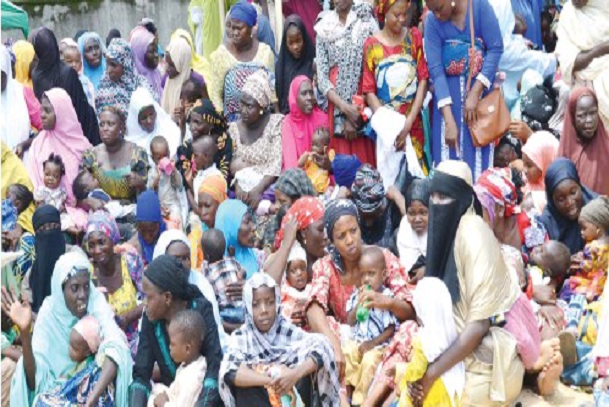 Wash your hands regularly and wear a face mask.
Learn more
Wash your hands regularly and wear a face mask.
Learn more

The United Nations (UN) Office for the Co-ordination of Humanitarian Affairs (UN-OCHA) has said that the cholera outbreak declared in Borno and Yobe States nearly three weeks ago has so far killed 97 persons.
UN’s head of communication, Samantha Newport, disclosed in a statement issued yesterday in Maiduguri that so far, the total recorded cases of Acute Watery Diarrhea (AWD) recorded in the states, stood at 3,126.
According to her, 989 cases of suspected cholera were recorded in five councils in Yobe state, adding to this number, 61 persons died as at September 19, 2018, taking the fatality rate to 6.2 percent.
She said in Borno State, 2,137 cases of suspected cholera cases were recorded in eight councils, killing a total of 36 people with a fertility rate that stood at 1.6 percent as at September 20, 2018.
“The key challenge in the state is poor accessibility to the affected councils and lack of communication networks in Gulani and Gujba communities affected by the activities of insurgents and terrorists.
“Health partners and community mobilizers have visited thousands of households in both Borno and Yobe states in recent days as part of the active case search to encourage individuals with cholera symptoms to be screened before it spreads to other communities,” she stated.
She explained further that in Borno, a 100-bed Cholera Treatment Centre (CTC) is fully operational in Magumeri Cholera Treatment Unit (CTU) and Dala of Maiduguri Metropolitan Council (MMC).
According to her, the treatment unit operates from an existing health facility, adding that another 20-bed capacity treatment centre has also been set up in Dalaram in MMC.
Speaking on the cholera situation in Yobe, Newport said: “It is dire and more facilities are needed to deal with the outbreak.
There is currently a CTU in Damaturu, the state capital, and a new CTU established in the General Hospital at Damagum in Fune Local Council.
She also disclosed that Humanitarian organizations were working to dislodge and rehabilitate latrines in affected Internally Displaced Persons (IDPs) camps where the risk of transmission is high due to the congested living condition.
“The state Ministry of Health, with the support of humanitarian partners, is coordinating the response through the Emergency Operation Centre (EOC),” she added.
Guardian